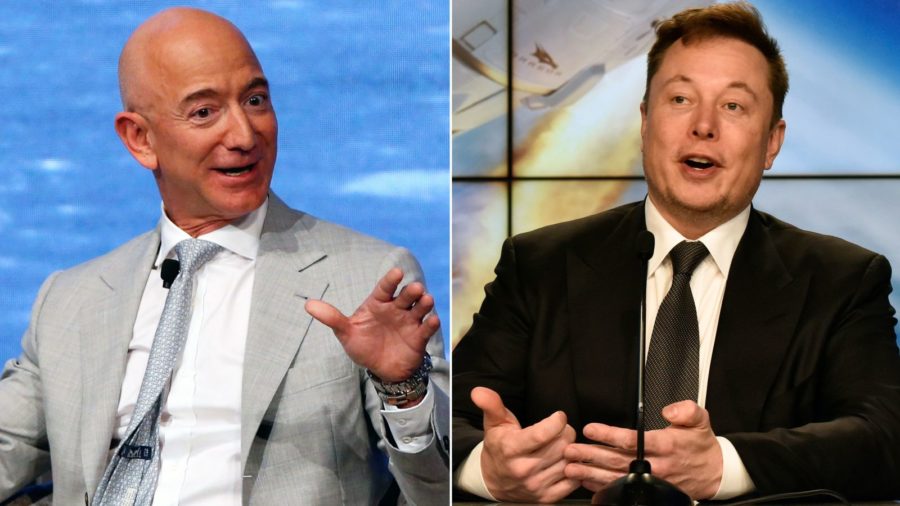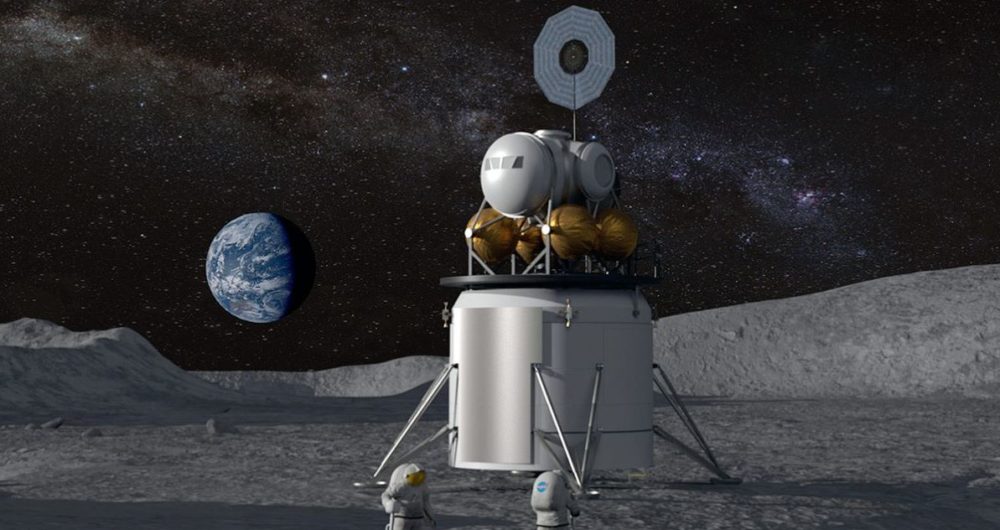Nasa has turned to three different companies in a race to send humans to the moon for the first time since 1972.
Nasa chose Elon Musk’s SpaceX and Jeff Bezos’ Blue Origin to develop the technology needed to get the first woman and next man to moon and back.
The private spaceflight companies will develop competing systems alongside the third company, Dynetics, but NASA will only choose one.

NASA awarded the three companies 10 month contracts that are worth a combined £770 million, with payments subject to the companies reaching specific milestones in development.
Jim Bridenstine, NASA administrator, said: “With these contract awards, America is moving forward with the final step needed to land astronauts on the moon by 2024, including the incredible moment when we will see the first woman set foot on the lunar surface.”
The companies are to design and build the human landing systems, including the launch and landing vehicles for NASA’s Artemis programme, which will return humans to the moon.
The SpaceX Super Heavy rocket, Blue Origin New Glenn Rocket System and the Dynetics Human Landing System are yet to be built or tested.
Elon Musk, who is currently complaining about the coronavirus lockdown measures previously suggested that SpaceX could potentially fly to the moon by itself if NASA was not willing to partner with it.
Elon Musk claimed that it would be easier for his company to actually land on the moon than attempt to convince NASA and other authorities that it was up to the task.
Mr Bridenstine went on to say: “I want to say that it’s important that this agency do this now, because our country, and in fact the whole world has been shaken by this coronavirus pandemic.”
“And yet, we need to give people hope. We need to give them something that they can look up, dream about, something that will inspire not just the nation but the entire world.”
NASA will decide one who to continue working with in February 2021 and who will, ultimately, be part of mankind’s return to the moon.




